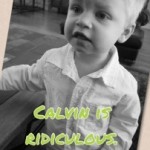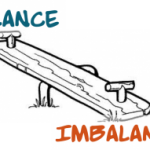I learned that in the Middle Ages, today—March 25—was New Year’s Day because this date is nine months before Christmas and the feast of the Conception of Jesus. In 1582, the world switched to the Gregorian calendar and that replaced the Julian calendar. This date of March 25, according to legend, was also the first day of creation, the day on which Adam and Eve left Eden to begin new life, the day of the Exodus from Egypt, and the day on which Jesus was crucified.
New Year’s Day in this current year was only 83 days ago! And if you are like me, the “new” year may already feel “old” as I have slipped back into routines of daily life and fallen victim to the fetters of habit. What about you? Have you forgotten your New Year’s promises, resolutions, intentions? Use today—the original new year’s day—to renew and refresh your commitments. On this day that was once famous for so many important milestone events, add yours to the legend. Let today be a FRESH START, a NEW BEGINNING, a “REBOOT.” It is a good day to purge outdated habits and change the course of your own history.










{ 1 comment… read it below or add one }
millions of times before.Some meattdiions:Let’s demystify the CANON. The Canon is obviously a meaningless list. I think Bloom acknowledges this to a point, but it is reflective of some sort of truth in many of the works listed. The fact that we still read an epic anonymously written 1000 years ago (Beowulf) or that we read the ancients, and a number of them at that, flabbergasts me. It’s a beautiful thing really, that after wars, changing geography, sociological shifts, technological breakthroughs that alter the very fabric of our societies, we still have time to listen to what some writer had to say a few thousand years ago, and we can still feel the courage, the wonder, the insight, the life of it all. It still feels new.Snobs and populists aside, most of us read either to be edified or entertained, but when a book smacks you upside the head and edifies you in a way that has little to do with knowledge per se, it’s a powerful feeling that most of us have trouble explaining, but leave that to the critics, or not. Whereas fashions on what’s entertaining and what’s important to know change with the aforementioned historical changes, it’s the powerful works that usually last. That’s why there’s a canon. But it’s meaningless because if the book listed doesn’t smack you upside the head with a wondrous new paradigm, if it doesn’t work for YOU, then it’s not in YOUR canon, if such a thing can be conceived. In fact, why not? In reality, that’s all it can ever be. High culture and low culture are ideological lenses. The authors of some of my favorite works, Ulysses and The Waste Land (although I don’t much like Eliot’s other poems), would laugh at the distinction. There’s a difference between having discriminating taste and fashioning your taste towards discriminatory attitudes. The first one shows thought, the second lack thereof.Originality is real, but it has more to do with being original than being different. Some writers who are afraid of scrutinizing themselves and their world resort to faking originality, and while academic types are sometimes fooled, something in the primordial nature rejects this as a plea for attention and nothing more. Being original, means being the origin. It’s how the greatest writers write the most formidable material and make it all seem like child’s play because it IS natural. It comes naturally when the origin is one’s self.And since when is there anything wrong with pop? Pop is the common language of our generation. After Warhol, things DID change, and, to the native of pop culture, it is a very developed field full of intertextuality and real meaning for real people. Pop music has its heroes, too. It has Dylan and Bowie and Rotten, even Lil Wayne. Sure, none of these have produced anything close to Shakespeare or Homer, but let’s remember how many years of oral tradition led to Homer’s breakthrough. Today our oral tradition is recorded and mass-produced. It is not inconceivable that one day masterpieces will arise from our pop culture. I used to think pop was doomed to the dustbin until I saw two large Rauschenberg pieces in a forced visit to a museum. That smacked me upside the head.But remember. It’s all play. It’s not make-believe, as King said in the article you posted. I think play is something different, something more gratifying than fantasy for fantasy’s sake, not that King or Rowling are either. I’ve read only one King, Shawshank, which I’m told is not a representative piece, and I’ve read the first three Potter’s, which, where play is concerned, get the job done. Play is when reality becomes more real if not just because you’re inventing it. The harder you play, the more it wraps around your day to day life, your thoughts, your existence, the deeper it gets. Mr. Insight himself, Prince Hamlet, was he not just a player?These are all seeds, some more for my own understanding than for any other purpose, but I’d be happy to start a discussion based on them. That’s all for now.